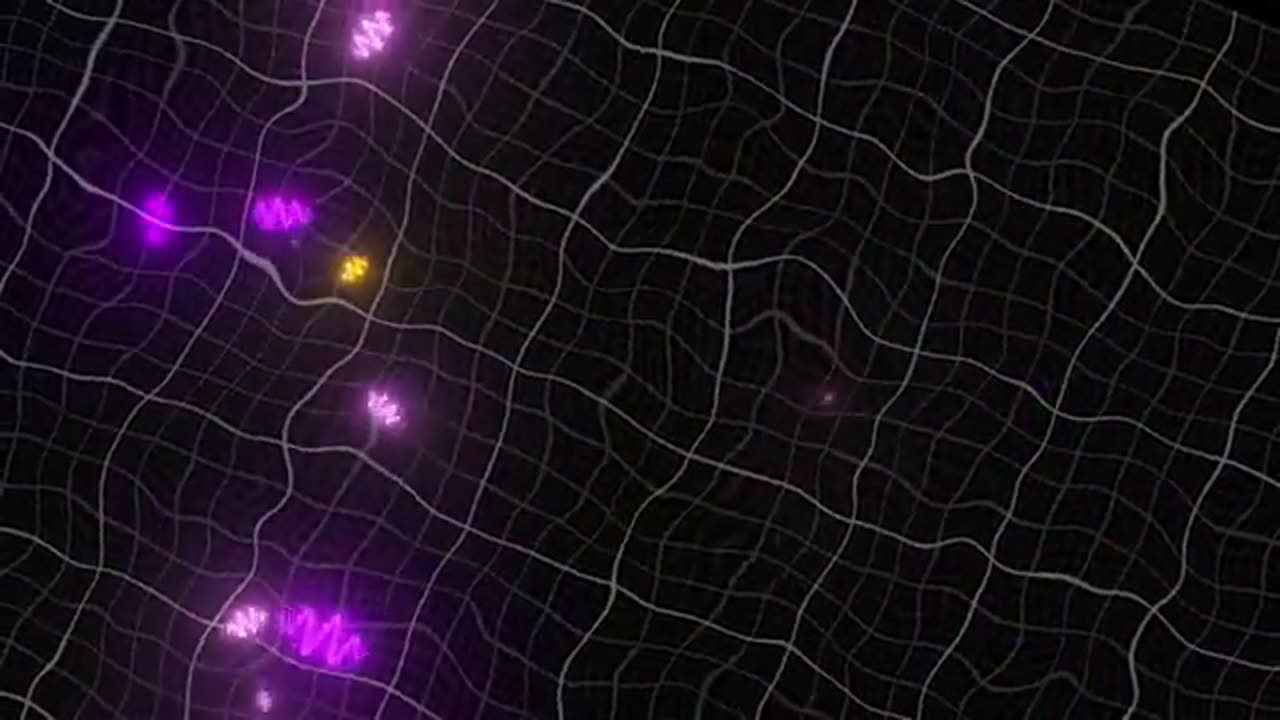Premium Only Content

Hawking radiation
**Hawking Radiation** is a theoretical prediction by physicist Stephen Hawking, proposed in 1974, which describes a process by which black holes can emit radiation and lose mass over time. This phenomenon combines principles of quantum mechanics with general relativity and challenges the traditional view of black holes as completely "black."
### Key Concepts Behind Hawking Radiation
1. **Quantum Fluctuations**
- In the vacuum of space near a black hole's event horizon, quantum fluctuations constantly create pairs of virtual particles and antiparticles. Normally, these pairs annihilate each other almost instantly.
2. **Event Horizon and Particle Separation**
- Near the event horizon, one of these particles can fall into the black hole while the other escapes before they can annihilate. The particle that escapes becomes real and is observed as radiation.
3. **Energy Conservation**
- To conserve energy, the particle that falls into the black hole has negative energy relative to the outside universe. This effectively reduces the black hole's mass over time—a process known as "black hole evaporation."
4. **Thermal Radiation**
- The escaping particles form what is known as Hawking radiation, which resembles blackbody radiation. The temperature of this radiation is inversely proportional to the black hole's mass: smaller black holes emit radiation at higher temperatures.
### Implications of Hawking Radiation
1. **Black Hole Evaporation**
- Over immense timescales, Hawking radiation causes black holes to lose mass and energy, eventually leading them to shrink and "evaporate" entirely. Large black holes lose mass very slowly, while smaller black holes emit radiation more rapidly.
2. **Connection Between Quantum Mechanics and Relativity**
- Hawking radiation bridges quantum field theory and general relativity, making it a cornerstone in the quest for a unified theory of quantum gravity.
3. **Black Hole Thermodynamics**
- Hawking radiation supports the idea that black holes have entropy and temperature, contributing to the development of black hole thermodynamics.
4. **Information Paradox**
- Hawking radiation raises the question of what happens to the information contained within a black hole as it evaporates. This "black hole information paradox" remains a significant puzzle in theoretical physics.
### Observational Challenges
- Hawking radiation is incredibly faint, far weaker than the cosmic microwave background radiation. This makes it extremely difficult to detect directly, especially for large black holes in the present universe.
### Speculative Implications
- **Primordial Black Holes:** Small black holes formed in the early universe might be evaporating now, potentially detectable via their Hawking radiation.
- **Quantum Gravity Insights:** Studying Hawking radiation could provide insights into the nature of spacetime and quantum mechanics at extreme scales.
Hawking radiation remains a profound theoretical insight, demonstrating how quantum effects manifest in the intense gravitational fields of black holes and reshaping our understanding of the universe.
-
 1:06:36
1:06:36
The Rubin Report
2 hours agoNo One Expected These Brutal Moments in Trump’s Inauguration Speech with Co-Host Sage Steele
3.87K11 -
 LIVE
LIVE
Dr Disrespect
5 hours ago🔴LIVE - DR DISRESPECT - DELTA FORCE - STARFALL NEW SEASON
2,947 watching -
 LIVE
LIVE
Revenge of the Cis
1 hour agoEpisode 1432: Take Two
2,183 watching -

Bitcoin Magazine
6 days agoLIVE: Donald Trump Inauguration | America's First Bitcoin President
25.3K -

In The Litter Box w/ Jewels & Catturd
17 hours agoINAUGURATION DAY | In the Litter Box w/ Jewels & Catturd – Ep. 723 – 1/20/2025
28.3K10 -
 LIVE
LIVE
GOP
15 hours agoDonald J. Trump Attends the Presidential Parade
2,584 watching -
 3:20:22
3:20:22
Steven Crowder
7 hours agoCrowder Inauguration Day Live Stream 2025 | The Return of Donald Trump!
982K365 -
 LIVE
LIVE
Right Side Broadcasting Network
7 days ago🔴 LIVE: The Inauguration of Donald J. Trump as the 47th President of The United States 1/20/25
68,757 watching -
 LIVE
LIVE
Kimberly Guilfoyle
2 hours agoLive Inauguration Day Coverage
1,871 watching -
 3:54:12
3:54:12
vivafrei
6 hours agoTHE DON OF A NEW AMERICA! Trump Inauguration Live Stream! Viva Frei Live!
79.5K69